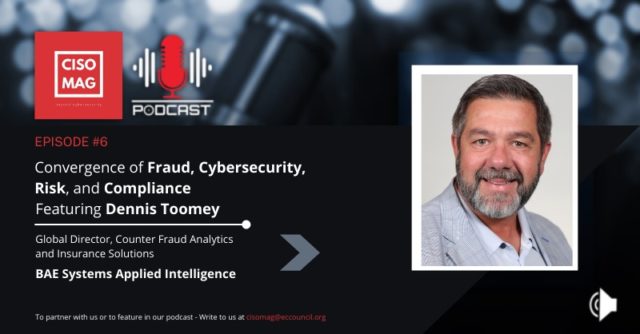
Insurance Fraud continues to evolve as it has done for centuries. Fraudsters, too, have evolved their techniques and upped their game. Dennis Toomey, Global Director, Counter Fraud Analytics and Insurance Solutions – BAE Systems Applied Intelligence, talks about the role of technology and the evolution of fraud in the insurance sector. Interestingly, he says there is a convergence of Fraud, Cybersecurity, Risk, and Compliance.
Toomey, with 28 years of international experience, provides top-class consulting on counter fraud analytics and operations to individuals and corporate organizations to help position their companies at the forefront of their industries. He guides them to develop strategic plans to advance their companies’ mission and objectives and to promote revenue, profitability, and growth as an organization.
Toomey says fraudsters are highly adaptive and continually change tactics, strategies, and even modes of operation. In past years, most schemes seemed focused on false auto thefts and property arsons. Fraud schemes today have shifted much more to bodily injuries and suspicious activities by medical providers. Workers’ compensation and auto insurance most notably have seen these changes in tactics. In response, insurers increasingly are adopting advanced analytics to counter the changing nature of the fraudulent activity.
Fraudsters can test system thresholds by filing many different applications online and manipulating rates by changing rating factors to reduce the premium. In addition, analysis suggests that a significant amount of claims fraud is perpetrated through illegally obtained policies. By shifting from a reactive to a more proactive posture, insurers are reducing fraud at policy inception and denying rate evaders a chance to file false claims once the ill-gotten policy is in force.
A growing challenge is rising point-of-sale or underwriting fraud to illicitly reduce premiums, observes Toomey.
Disruptive technology like RPA, AI, and data analytics are helping in curbing or detecting fraud. For instance, the time window for investigations has reduced from five years to one year, thanks to technology.















